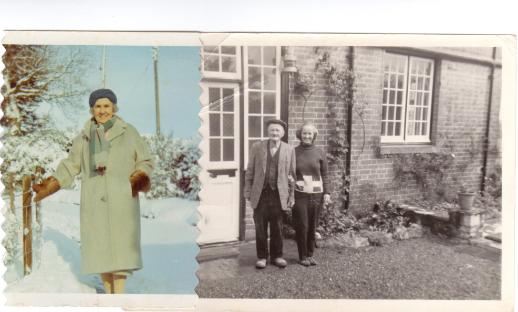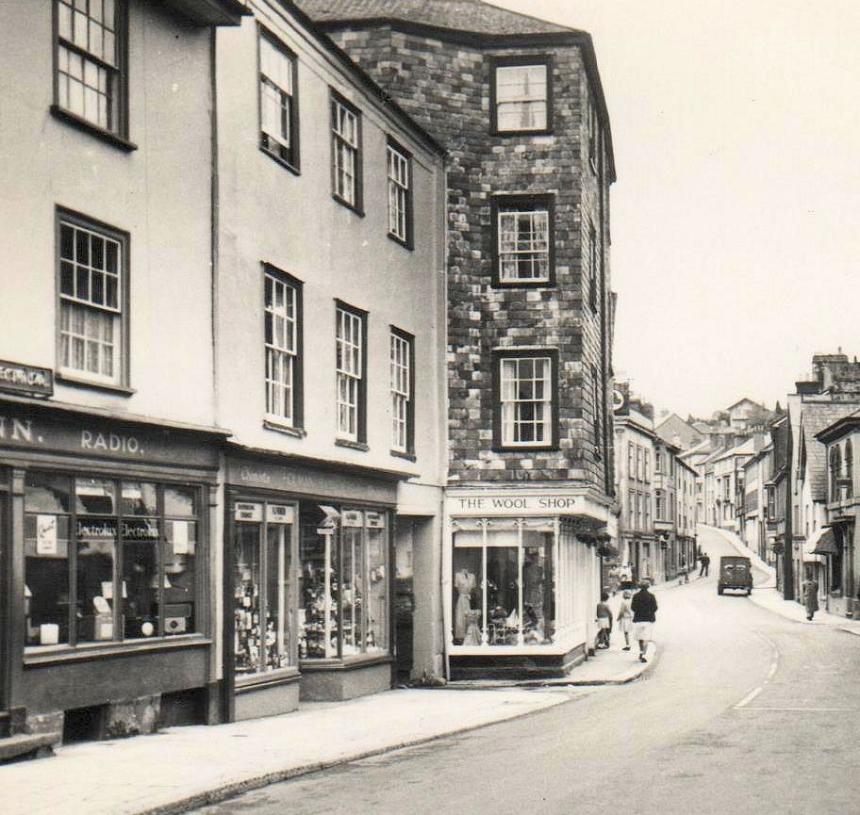
Mrs Stidston Chippy Hardy with Eve Lowell

The Kerslakes had a chemists at 44 East Street; the other chemist in the town was Holman, Ham and Co in West Street.
When I was
11 years old I attended Totnes High School - earlier generations who
went there (or to the boys' school, King Edward the Sixth School) went
on the train, Bulliver, but passenger services to Ashburton had ceased
in 1958 (see http://www.southdevonrailway.co.uk/history for a history of the line). So
we went on the bus - contemporaries or near contemporaries whom I
remember are: Colleen Brixey, Shelagh Dent, Linda Paul, Alistair
Macdonald, Brian Wright, Robert and Christopher Bray, John Furneaux,
Peter and Susan Wakeham, Cynthia Fox and I believe Pauline Ash.
As a teenager I
joined the Methodist youth club, held at the chapel in West Street;
later I moved to the youth club in Stapledon Lane. There was a café with a
juke box in East Street that was a great place for youngsters to meet:
I'm told this might have been Jennings.
Ron's Café (Ronald Bonstow) was at No. 13 North Street. There were occasional mishaps with the catering: 'King Alfred again!' he would cheerfully announce, as smoke billowed out of the kitchen.
The dual carriageway was not built until the 1970s – in the 60s the A38 was a single carriageway road that bypassed Ashburton. When prisoners escaped from Dartmoor, the police would erect roadblocks and stop traffic to search for the escapee. They would open car boots, or walk along the bus aisles looking for someone crouching behind the seats – probably alarming for adults, but for a child it was very exciting.
Two escaped prisoners were recaptured in Ashburton in January 1967. Boys playing around some barns near their homes spotted the men and reported what they had seen, and a young constable found them sitting on bales of straw.*****
My main memory of the incident was of locals who had been near the barns in the previous week, who were thrilled to think that they had been so close to desperate criminals. As it was the middle of winter, and the prisoners must have spent days on the freezing cold, barren moor, I doubt they presented much danger.
* Kelly's Directory of Devonshire 1935 : Stidston, Eng.-Capt Stanley Thomas R N (ret), Ashe
** Mary K German on the 1965-66 register of electors
*** In The Collected Letters of Thomas Hardy, 1926-27, vol 7, p67 it is said that Ashburton Police, at the instigation of James Mortimer, made 'inquiries' into Alfred John Hardy's claims. The inquiries do not seem to have deterred him.
For more on Chippy, see Crime and Punishment, under Ashburton in Peril.
Believed to be in the Dolbeare area. From an Ashburton resident.
From my own collection